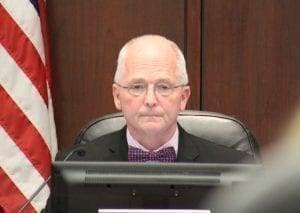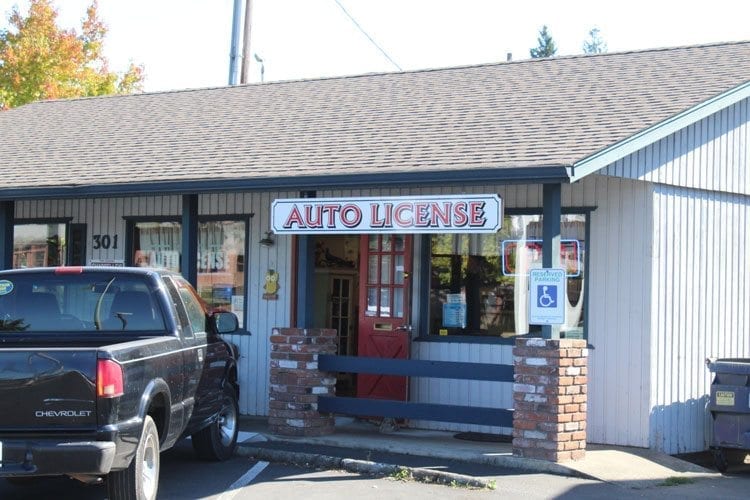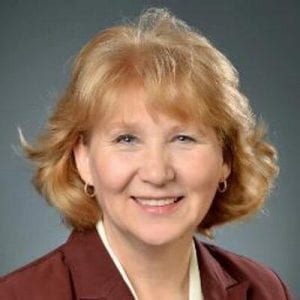Mayor Philip Johnson seeks to work with area elected officials to enforce vehicle registration laws
BATTLE GROUND — Battle Ground Mayor Philip Johnson is working to bring local elected officials and community members together in an initiative to reduce the number of out of state license plates on vehicles in Clark County.

Johnson announced at the Sept. 18 Battle Ground City Council meeting that he had reached out to elected officials in every city in Clark County to address the issue of cars owned by Washington state residents being registered out of state.
Johnson discussed his plan Monday night after the regularly scheduled city council meeting.
According to Johnson, if a Washington resident buys a vehicle in Oregon, the buyer must pay taxes on the vehicle, which are sent to Washington. However, Johnson said that many owners buy a vehicle in Oregon and leave it registered in that state. By leaving a car registered in Oregon, Washington residents avoid state taxes for purchasing the vehicle and for licensing, Johnson said.
“The problem is that these are folks who aren’t pulling their own weight in the community,” Johnson said.
In Battle Ground, not paying Washington state vehicle registration fees means that drivers do not pay a $20 per plate, per year transportation benefit district (TBD) fee, Johnson said. According to the Washington State Department of Licensing, TBD fees are used by some local governments to help fund projects related to transportation in that area.
By not paying the TBD fee, Johnson said that some residents can receive the benefits of local transportation improvement projects, such as new roads, without helping to pay for them.
Johnson said that he is aware that many people who keep out of state license plates may also keep their out of state drivers license as well. For people with Oregon licenses, this means that they may live in Washington but not pay the state sales tax, Johnson said.
“I view it as a very large problem,” Johnson said. “It’s tax evasion, it all boils down to that.”

State law requires that any vehicles purchased out of state by a Washington resident must be licensed in Washington within 30 days, Johnson said. Additionally, according to the Washington State Department of Licensing website, any resident moving to Washington must obtain a Washington state driver’s license within 30 days.
To address out of state license plates, Johnson has reached out to 52 elected officials from every city in Clark County to gain support for enforcing laws that require vehicle registration in Washington.
Johnson said that he has received positive feedback from many of the officials he has contacted. Vancouver Council Member Anne McEnerny-Ogle is “very concerned” about the issue in Vancouver, Johnson said.
In Vancouver, some efforts have already been made to reduce the number of out of state plates. Like Battle Ground, Vancouver also has a $20 TBD fee that pays for road and transportation construction, McEnerny-Ogle said.

Last year, the volunteer group Neighbors on Watch partnered with the Vancouver Police Department and a researcher from Portland State University to document the number of out of state license plates in the city, McEnerny-Ogle said.
From Aug. 2016 to Apr. 2017, volunteers documented the number of out of state license plates in Vancouver neighborhoods. According to a presentation given to the Vancouver City Council on May 5, 2017, the study found that 9.7 percent of vehicles had out of state plates.
McEnerny-Ogle said that the percentages ranged from 6 to 17 percent depending on the individual neighborhood.
“In fact we do have a problem,” McEnerny-Ogle said.
Beginning on Oct. 7, the Vancouver Police Department will launch another phase of the effort to reduce out of state plates. Neighbors on Watch volunteers will again document out of state license plates in Vancouver neighborhoods, according to Jaycee Elliott, a former graduate student at Portland State University and author of the city’s prior study and now a crime analyst for the Vancouver Police Department.
Elliott said that this second survey will count only plates from other states, and will be more “focused.” The plate series will be recorded, as well as details about the vehicle itself. This effort is focused on vehicles parked on residential streets, and the volunteers will place courtesy flyers on windshields that have information about state licensing laws.
Once the vehicles have been identified, Elliott said that police department staff will work to determine if the vehicles are owned by Vancouver residents. Eventually, Elliott said that vehicle owners will be sent a mailed reminder to make sure they have complied with the law.
According to Elliott, the project will “seek volunteer compliance” with state licensing laws. Eventually, a light duty officer may be sent to seek compliance, Elliott said.
Vancouver police officers will also receive training from a Washington State Patrol license fraud investigator in enforcement options and how to address out of state plates during traffic stops, Elliott said.
Johnson said that he has reached out to three representatives from the Washington State Patrol to see what can be done to reduce the number of out of state plates in Clark County. He is hoping that the conversation will lead to more enforcement of the licensing laws already in the state of Washington, and noted that very little has been done in the past to address the issue.
Johnson said that he is still waiting to hear back from the state patrol regarding potential solutions. Once he has heard from them, Johnson plans to hold a public meeting with as many local elected officials as possible, as well as community members, to discuss the issue and potential solutions.
By enforcing laws that already exist, Johnson hopes that as people begin to be cited for violations, other citizens will notice the increased enforcement and take the necessary steps to register their vehicles in Washington state.
“At that point I think it will start cleaning up itself,” Johnson said.
More information about Vancouver’s campaign to reduce out of state license plates can be found online at https://www.cityofvancouver.us/police/page/out-state-plate-program. Elliott said that residents can also anonymously report out of state license plates online at https://www.cityofvancouver.us/police/webform/out-state-vehicle-license-report.




